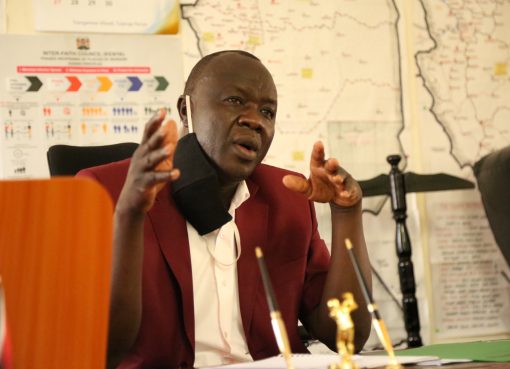Despite the issuance of tablets to 1, 238 primary schools in Kitui County, a paltry 30% of the schools have integrated ICT in teaching and learning, Kitui ICT officer has said.
Kitui County ICT officer Nicholas Babu raised concern on slow digital learning uptake in schools as the government pushes for 100% basic education transition.
“Although connectivity to the national grid has been a challenge to some schools which were established after the pilot survey, some teachers are opposed to the new way of teaching and have opted to stick to the chalk and board method,” said the ICT officer.
Speaking on Friday during a County Development Implementation Coordination Committee meeting, Babu decried a common tendency observed where laptops were neglected in some school stores and never used in classes despite the extensive ICT awareness campaigns mounted by the ICT Authority in the county through teachers’ training and sensitizations.
“We have continued with these trainings on termly basis. We conduct them at the zonal level to all headteachers and two selected ICT teachers from every school,” said Babu.
Babu said that 41 theft cases of the tablets, projectors, hard drives and other gadgets were not reported and called on the police and criminal investigations teams to swing into action to ensure that the perpetrators are brought to book.
He called for the adoption of this new mode of teaching and tasked quality assurance and standards enforcement by both the Ministry of Education and Teachers’ Service Commission through frequent monitoring to compel teachers to adopt ICT integration in learning and teaching.
Babu further urged teachers to embrace ICT adding that the proposed training of Sub-County Education Directors, Quality Assurance and Standards Officers and other stakeholders in the education sector will foster effective monitoring in a bid to make the project successfully.
‘We have asked the Kenya Institute of Curriculum Development to hasten the uploading on the new curriculum content onto the devices to allow teachers ample time to migrate to the new system,” he disclosed.
The DigiSchool project will enhance the teaching and learning experience by making the teachers more effective, efficient and resourceful in curriculum delivery.
In Phase II, the Digital Literacy Programme (DLP) will move to the adoption of a computer lab model where over 5, 000 primary schools will be equipped with ready to use computer labs.
“This model promotes collaboration, critical thinking and communication skills. Thereafter, 7, 000 more schools will benefit and finally another 5, 000 by the year 2020,” he said.
Meanwhile, shocking teenage pregnancies in Kitui County that hit a high of 11, 692 in 2018 are derailing the 100% transition to secondary schools.
“According to the hospital records availed to the Ministry of Education, 818 births were reported among 10-14 year-olds and an astronomical figure of 10, 874 among 15-19 year-olds,” said Adano Salesa, Kitui County Director of Education.
Adano revealed that preliminary investigations initiated by the Ministry of Education have revealed that biting poverty and the decaying of the moral fabric among parents has pushed teenage girls in school to engage in pre-marital sex and thus exposing themselves to unwanted pregnancies.
“Early pregnancies has continued to affect the overall performance of Kitui County over the years. We cannot sweep this matter under the carpet any more. We need concerted efforts to stem this tide and improve the education sector,” said the County Education Director.
He also singled out distance to the nearby schools saying that this has also contributed to poor performance as learners are forced to walk for long distances in search of knowledge amid cases of insecurity in areas bordering Tana River County.
Jackson Ole Chuta, Kitui Central Deputy County Commissioner said that the government will take action in a bid to ensure that teenage pregnancies are controlled in a bid to mitigate the 100% transition.
“We are collating reports from chiefs and their assistants on teenage pregnancies and comparing with hospital reports. If any administrator is found abetting teenage pregnancies through skewed reporting, he or she will face the law for false reporting,” said Ole Chuta.
By Yobesh Onwong’a
Friday, November 15, 2024



